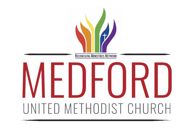
13 Then Pilate called together the chief priests, the rulers, and the people. 14 He said to them, “You brought this man before me as one who was misleading the people. I have questioned him in your presence and found nothing in this man’s conduct that provides a legal basis for the charges you have brought against him. 15 Neither did Herod, because Herod returned him to us. He’s done nothing that deserves death. 16 Therefore, I’ll have him whipped, then let him go.”
18 But with one voice they shouted, “Away with this man! Release Barabbas to us.” (19 Barabbas had been thrown into prison because of a riot that had occurred in the city, and for murder.)
20 Pilate addressed them again because he wanted to release Jesus.
21 They kept shouting out, “Crucify him! Crucify him!”
22 For the third time, Pilate said to them, “Why? What wrong has he done? I’ve found no legal basis for the death penalty in his case. Therefore, I will have him whipped, then let him go.”
23 But they were adamant, shouting their demand that Jesus be crucified. Their voices won out. 24 Pilate issued his decision to grant their request. 25 He released the one they asked for, who had been thrown into prison because of a riot and murder. But he handed Jesus over to their will.
26 As they led Jesus away, they grabbed Simon, a man from Cyrene, who was coming in from the countryside. They put the cross on his back and made him carry it behind Jesus. 27 A huge crowd of people followed Jesus, including women, who were mourning and wailing for him. 28 Jesus turned to the women and said, “Daughters of Jerusalem, don’t cry for me. Rather, cry for yourselves and your children. 29 The time will come when they will say, ‘Happy are those who are unable to become pregnant, the wombs that never gave birth, and the breasts that never nursed a child.’ 30 Then they will say to the mountains, ‘Fall on us,’ and to the hills, ‘Cover us.’ 31 If they do these things when the tree is green, what will happen when it is dry?”
32 They also led two other criminals to be executed with Jesus. 33 When they arrived at the place called The Skull, they crucified him, along with the criminals, one on his right and the other on his left. 34 Jesus said, “Father, forgive them, for they don’t know what they’re doing.” They drew lots as a way of dividing up his clothing.
35 The people were standing around watching, but the leaders sneered at him, saying, “He saved others. Let him save himself if he really is the Christ sent from God, the chosen one.”
Reflection
“Father, forgive them, for they don’t know what they’re doing.”
For me, it’s perhaps the most important line in all the gospels. It seems to sum up what this good news is about: Jesus’ forgiveness that is so great, it extends even to those who would put him on a cross.
I’m struck by the choice of words: “they don’t know what they’re doing.” It’s something we say about children or adults who, for whatever reason, lack a fully developed understanding of right and wrong.
Jesus looks at all of humanity in that moment – all of humanity as represented in the crowd, the leaders who incited them, and the Romans who crucified him – and he says, “they don’t know what they’re doing.” I count us among those covered by that statement too, because you and I both know that of the THOUSANDS who heard him, the HUNDREDS who followed him, the DOZENS who were healed by him, only a tiny handful of people remained true to the end. What makes us so certain that WE would have been among them? Is our understanding really that much better?
Chances are that we would have looked at him, humiliated by the Sanhedrin and beaten by Pilate, and agreed with the crowd, that Jesus was just the latest in a long line of frauds. In ancient Israel, false Saviors and false Messiahs were a dime a dozen. So no one would blame us for taking that position – including Jesus.
And that’s the point. The real Savior, the real Messiah, can forgive all things: our unwillingness to see, our unwillingness to listen, and our unwillingness to believe that God’s plan just might go through a cross.
If we couldn’t see God’s plan then, how do we expect to be any better able to see it today? Forgive us, Lord, for we don’t know what we’re doing.
by Joe Monahan
For Pondering & Prayer
Today’s scripture is one that calls us to humility. Perhaps the leaders’ and the crowd’s most serious sin is certainty – the firm belief that they already know and see God’s plan, and that the cross is not it. Where in your life might you be guilty of the sin of certainty?
Prayer: Holy Jesus, allow the cross to humble us again this week. Use it to remind us that the way of Christ is one that is seldom glorious, often painful, and frequently surprising. Let it bring to mind the certainty that drove the nails, and cause us to think twice before we crucify someone else. Amen.
Our Lenten Series
For our Lent series this year, we’ll be using the Adam Hamilton book Luke: Jesus and the Outsiders, Outcasts, and Outlaws. At his website, you can find a 40-day reading plan to help you read through the Gospel of Luke during Lent. And join us for worship, in-person or online, at 9:00 & 10:30 every Sunday.

